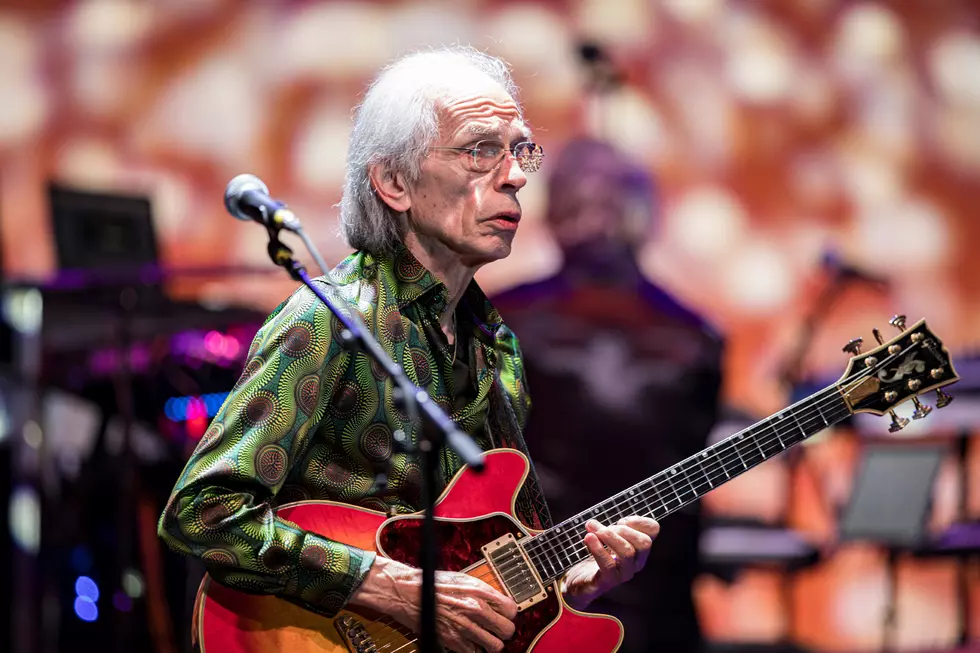
The 10 Most Underrated Yes Songs
Some Yes songs are almost universally beloved — even the most prog-allergic critic can muster praise for the symphonic splendor of "Close to the Edge" or "Heart of the Sunrise." But some songs are divisive, even among die-hards — or even the band members themselves: Keyboardist Rick Wakeman despised sections of Tales From Topographic Oceans, famously eating a curry onstage out of boredom.
It's hard to play the "underrated" game with Yes. Like Genesis or Rush, prog bands that also survived the genre's cultural burial, their style evolved considerably over the decades. They've also swapped members in and out like a restless NBA GM with a green light for trades. This presents us with conundrums like "Owner of a Lonely Heart," a No. 1 hit that makes many OG fans shudder with disgust. But even if half the audience hates it, can a chart-topping song be underrated?
For the below list of the 10 Most Underrated Yes Songs, we tried to consider all meanings of that word, factoring in commercial success, critical status, concert prevalence and the most important element of all: our gut.
"Survival"
From: Yes (1969)
Yes have played "Survival," the serene, psychedelic centerpiece of their debut LP, only a handful of times — twice in the late '60s and then, after decades of dormancy, during their 2017 Yestival dates and 2018 Cruise to the Edge. (The late revival is ironic: None of Yes' current band members played on the original recording.) The song did get a nod on the band's 1993 best-of compilation, Highlights: The Very Best of Yes, but it's still widely forgotten as a relic of the pre-Steve Howe era. That's a shame: With its galloping organ theme and pastoral folk passages, it's as sturdy as (almost) anything from The Yes Album or Fragile.
"Then"
From: Time and a Word (1970)
"Hate is the root of cancer," Jon Anderson croons with supreme rasp on "Then," diagnosing the world's ills over a thrilling, turbulent full-band attack. Yes Mach I were rarely this in-sync — even the controversial brass and strings, which overpower weaker sections of Time and a Word, match the intensity of Tony Kaye's Hammond organ and Peter Banks' electric guitar.
"A Venture"
From: The Yes Album (1971)
Yes' breakthrough masterpiece has six songs: three obvious classics ("Yours Is No Disgrace," "Starship Trooper," "I've Seen All Good People"), a reliable Steve Howe guitar showcase ("Clap"), an album-closing epic often cited among the band's most innovative work ("Perpetual Change") and, well, "A Venture." The latter, which wasn't debuted live until 2013, can't help but get buried — but on any other album it wouldn't. It's the record's most restrained tune, but there's plenty to savor — particularly Bill Bruford's jazzy drumming, Tony Kaye's slick piano and a thick slab of vocal harmony.
"The Revealing Science of God (Dance of the Dawn)"
From: Tales From Topographic Oceans (1973)
For many prog haters, Tales From Topographic Oceans defines the excess and empty showmanship of a movement past its prime. That flak isn't entirely invalid: Large chunks of Yes' sixth LP are musically aimless, relying more on texture and (in Rick Wakeman's words) "padding" than concrete songwriting. "The Revealing Science of God (Dance of the Dawn)" has its soggy stretches over 20 minutes, but it also features some of the band's most gripping moments: The opening salvo, with its disorienting chants and whirring synths, plays like a wilder version of "Close to the Edge."
"To Be Over"
From: Relayer (1975)
Yes fully embraced jazz-fusion on Relayer, their first and only LP with Swiss keyboardist Patrick Moraz. But they closed the record with a much-needed respite from the virtuoso frenzy: "To Be Over" has its noodly moments, but the overall vibe is psychedelic serenity, led by Steve Howe's gently trickling pedal steel and electric sitar.
"Future Times / Rejoice"
From: Tormato (1978)
"I think they're pretty explicit in what they say," Jon Anderson once remarked of his words on "Future Times/Rejoice." That's a stretch — lyrical samples include "In the fountains of the universe / Sits the boy-child Solomon" and "Hot metal will abound the land / As the form regards our blazing hand." Clarity or no, the surging song became a staple on the band's Tormato tour before falling out of their set lists forever. Many critics accurately note the song's imbalanced mix, the brittleness of Rick Wakeman's synths and some occasionally awkward transitions. Despite the clunky recording, "Future Times" remains a bright spot on this universally panned LP.
"Does It Really Happen?"
From: Drama (1980)
The revamped Yes-plus-Buggles lineup equally split the writing credits for Drama, highlighting their chemistry as the '80s kicked off. This punchy, subtly complex rocker is a perfect example: The track originated from Yes' ill-fated 1979 sessions with producer Roy Thomas Baker, but it took flight only after Trevor Horn and Geoff Downes added their magic touch. The result is a distinctive balance of new wave and vintage prog: Chris Squire and Alan White lock into one of their heaviest, funkiest grooves; Steve Howe adds some choppy riffs in the seams; and Downes sprinkles all sorts of pixie dust over top: Hammond organ runs, bright synth leads and tuned percussion sounds.
"That, That Is"
From: Keys to Ascension (1998)
It's easy to overlook Keys to Ascension, given its odd billing as a half-live/half-studio project. But it includes one of the group's finest excursions into long-form prog, the 19-minute epic "That, That Is." Its seven sections build from tranquil acoustic guitar to stacked vocal chants to sparkly piano balladry. But the quintet — the classic crew of Anderson, Howe, Squire, Wakeman and White — makes every transition feel seamless. It's not quite "Close to the Edge," but it's way closer than anyone could have expected.
"Magnification"
From: Magnification (2001)
Only the most faithful Yes fans were still listening by 2001, so pretty much everything on Magnification — their only record without a keyboardist — is on the table for this list. The robust title track is a late-era highlight, integrating the guest orchestra into a rhythmically shapeshifting prog-pop arrangement. Unlike many tracks on Time and a Word, where string sections often canceled out the other players, the symphonic-rock fusion is expertly balanced here.
"Fly From Here"
From: Fly From Here (2011)
Fly From Here is one of the band's most divisive LPs — partly due to the absence of Jon Anderson and the addition of his replacement, former tribute singer Benoit David. But the latter more than holds his own on his lone Yes LP, including this sweeping, six-part suite. The piece originated from an unrecorded tune cowritten by producer Trevor Horn and Geoff Downes, previously debuted on Yes' 1980 tour. But it bloomed in the studio, highlighted by David's expressive vocals and a dynamic arrangement with new sections like Steve Howe's wacky instrumental "Bumpy Ride."
See Yes Among Rock’s 100 Most Underrated Albums
More From Ultimate Classic Rock









